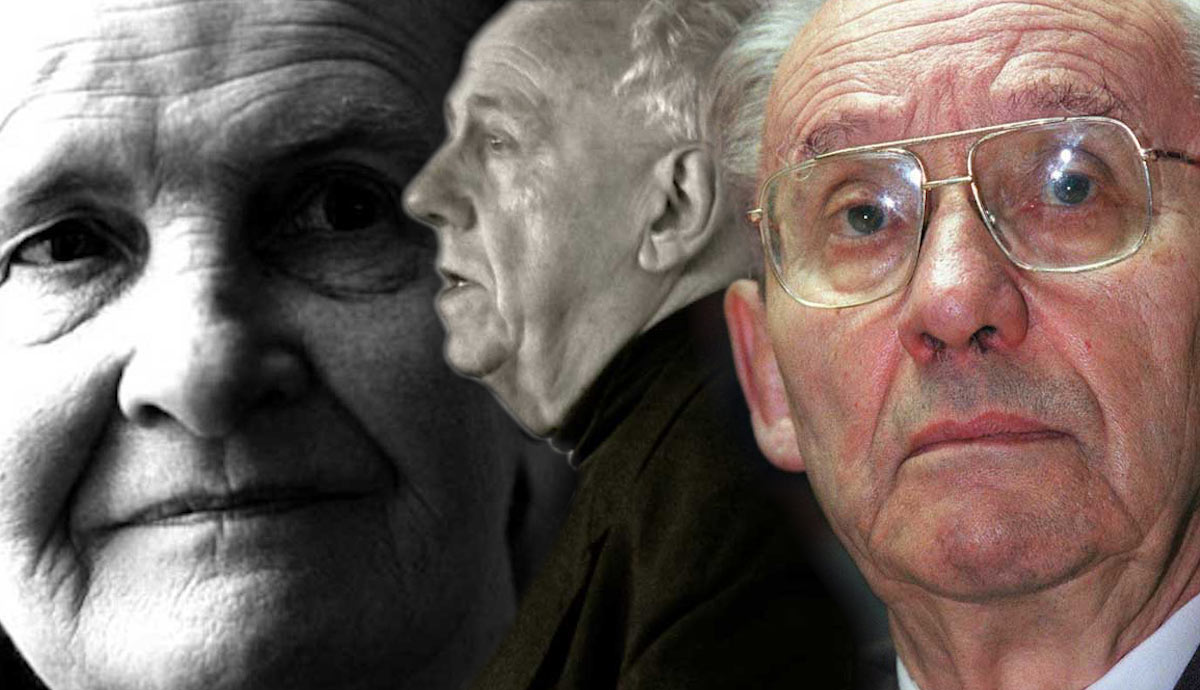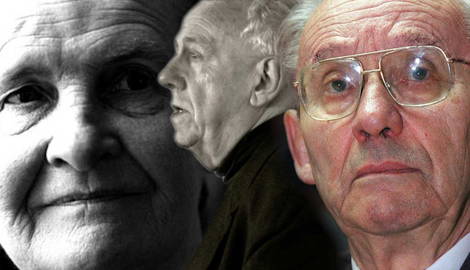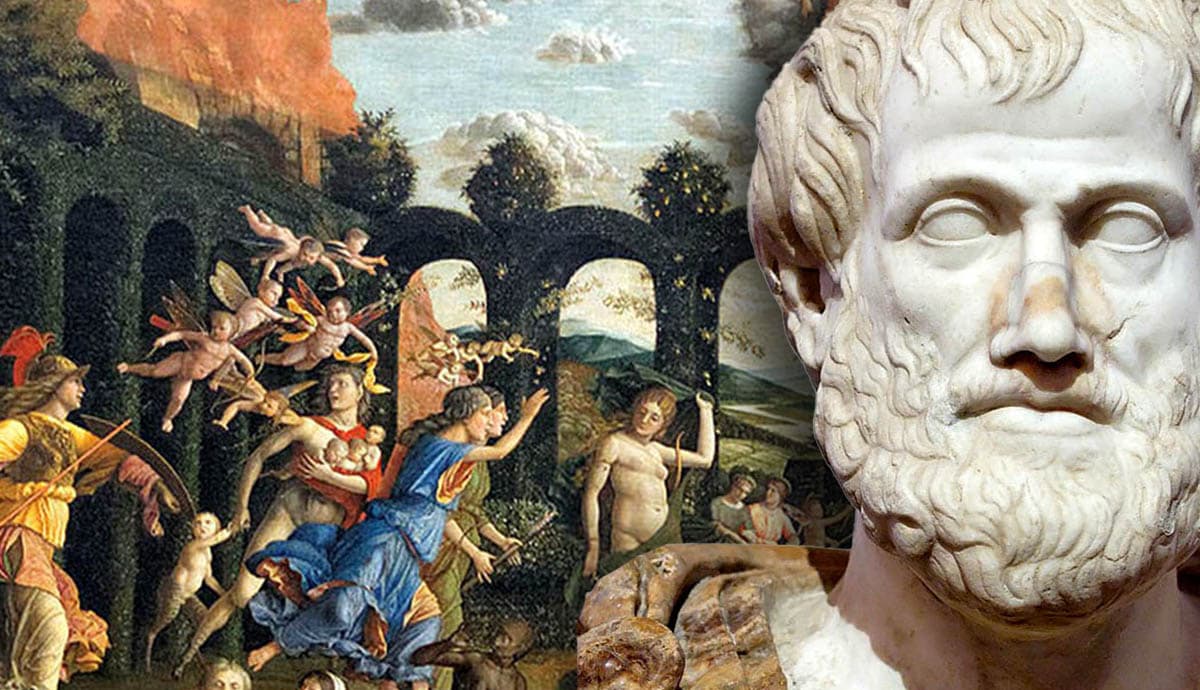
What is Christian ethics, and what does it have to teach us in the modern world? This article hopes to introduce the contemporary field of Christian ethics by focusing on three rather different Christian ethicists of the late 20th and early 21st centuries: Elizabeth Anscombe, Alasdair MacIntyre, and Paul Ricoeur.
It begins with a discussion of Christian ethics as a whole and explains some of the difficulties which emerge when trying to define it. The section on Elizabeth Anscombe discusses her work on virtue ethics and religious ethics as the only coherent form of legalistic, rule-based ethics. The section on Alasdair MacIntyre addresses his conception of virtue, and of rationality in ethics. The section on Ricoeur focuses on his theory of agency and the ethical life which he sees as following from it.
What Is Christian Ethics?

What is Christian ethics? Two apparently simple answers come to mind. First, Christian ethics is ethics done by Christian philosophers, where a “Christian philosopher” is simply a philosopher who happens to be a Christian. Second, Christian ethics is the discipline devoted to figuring out what a “Christian ethics” should be, meaning how a Christian should act, should conceive of morality, should define moral goodness, and so on.
Choosing either answer seems almost inevitably unsatisfactory and problematic, for various reasons. Here is one: we might reasonably think that philosophers who are Christians bring their faith into their work, but without necessarily writing ethics that is for believing/practicing Christians, or at least not exclusively so. As we shall see with all three of the Christian ethicists addressed here, it would be wrong to understand their work apart from their faith, but it would be equally erroneous to see their work as speaking only to fellow Christians, much less to Christians following a specific set of doctrinal norms.
1. Elizabeth Anscombe

Elizabeth Anscombe was one of the most important philosophers of the 20th century. She was born in 1919 and converted to Catholicism while still in high school. She studied Classics at the University of Oxford, which included philosophy as one of its subdisciplines. Her biggest philosophical influence was undoubtedly that of Ludwig Wittgenstein, who considered Anscombe one of his most able students (in spite of his ordinary reservations about the prowess of female philosophers) and appointed her one of his literary executors.
Anscombe would, along with Peter Geach (her husband and fellow student of Wittgenstein’s), eventually be buried in a plot across from Wittgenstein’s own place of rest. Anscombe’s work extended into a wide range of philosophical subjects, and although she should (probably) not be conceived of as a systematic philosopher, certain interests and patterns of thinking recur again and again throughout her authorship. For one, there is a concern with the relationship between spontaneity and rule following in action, including—evidently—moral action.

Arguably, her most distinctive contribution to the field of ethics comes from her paper Modern Moral Philosophy, which is undoubtedly one of the most discussed papers in philosophical history.
Various things happen in this paper, but perhaps the most important is the introduction (or, as she might have it, the reintroduction) of virtue into modern moral philosophy. The way she goes about doing this is to observe that the tendency in modern moral philosophy (and, indeed, in modern life) tends away from a religious conception of the world and of what is right.
On Anscombe’s account, this has several unintended consequences. Here’s the main one: what God is in the context of ethics is a kind of lawmaker, and at the point when we start to deny His existence and thereby deny the existence of a lawgiver, our conception of ethics (which is essentially law-based) must also be rethought fundamentally.
What exactly Anscombe’s angle is on all of this remains a matter of dispute. A non-religious conception of ethics would, on Anscombe’s account, require a full account of moral psychology, and this amounts to returning to the conception of ethics favored by the Greeks in general and articulated most clearly by Aristotle specifically, which is commonly referred to as virtue ethics.
But of course, Anscombe herself was religious, and so can naturally be read as suggesting the consequences for those who take a different position on religion are, in the context of ethics, rather problematic. Yet the effect of this paper was primarily to spur a renewed interest in virtue ethics, both among secular and religious philosophers. One philosopher whose work constitutes part of this renewal is the subject of our next section.
2. Alasdair MacIntyre

Alasdair MacIntyre is a Scottish philosopher, whose work (especially that in After Virtue and subsequent books) is often cited as one of the most original and important formulations of virtue ethics as an ethical and political position.
MacIntyre was born in 1929, studied at Queen Mary’s in London, the University of Manchester, and the University of Oxford, and has taught at many universities since. His work takes a great deal of inspiration from Aristotelianism, especially Aristotle’s ethical theory, as an antidote to the (related) currents of secular “rationality” and of liberal capitalist modernity.
Parts of his virtue ethics are quite conventionally Aristotelian: the emphasis on character, the claim that character precedes good judgment rather than the other way around, and the view that formal rules of conduct do not adequately describe what it is to lead a good life. Yet other elements of his virtue ethics are distinctive, in particular the emphasis he places on community and the goods which result from existence within a certain community.
One thing which is striking about his work is its break with a rationalistic account of ethics, and a move towards an ethical program based on historical analyses and on analyzing discord, disagreement, and discursive failure within modern moral philosophy.
One of the more distinctly religious-minded elements of MacIntyre’s work comes in the sequel to After Virtue, called Whose Justice? Which Rationality?. In this work, MacIntyre claims both that any attempt to deploy reason necessarily occurs under the auspices and within the constraints of a tradition, and that this claim does not imply a relativistic or perspectival approach must follow from this. It is a central claim for any Christian that universally valid and binding forms of understanding can be developed from within a particular textual and discursive tradition, namely that of Christianity itself.
3. Paul Ricoeur

Paul Ricoeur was born in 1913 and was raised by his grandparents and his aunt due to the deaths of both his parents during the First World War. Ricoeur was raised in a devout, Reformed Protestant household in Rennes. He studied philosophy at the University of Rennes and then at the Sorbonne in Paris.
Having lost his parents during the First World War, he was taken as a prisoner of war for much of the Second World War, after which he became one of the most famous French intellectuals internationally (no easy feat in the latter half of the 20th century).
Ricoeur was convinced from the outset that human beings are defined by their agency, and their qualitative separation from things is justified thereby. Yet at the same time, he greatly took against one of the most (or perhaps simply the most) common ways of conceptualizing this distinction, which is via a Cartesian substance dualism, in which the mind or soul is of a fundamentally, irreducibly different kind to the material body. Ricoeur’s ethics can be understood, in no small part, from this perspective. Since what we are most fundamentally are agents, the question then is what it is good for us to decide to do.

What are the parameters of a good life? Unlike MacIntyre and Anscombe, Ricoeur does not attempt to characterize these parameters in terms of virtue. One of the more famous statements of his ethical position is rather bland: “aiming at a good life lived with and for others in just institutions.”
Behind this rather truistic (or at least, somewhat insipid) statement of what is required ethically, there is a three-part structure to Ricoeur’s ethical thought.
First, ethical intention has to be mediated by existing norms which determine what it is to make good practical judgments. In a sense, this too is rather obvious – what is good for oneself and others is clearly dependent, at least in many cases, on the kind of society in which one lives. At the same time, we can see this as a profoundly Christian plea for an ethical life as one which must first pass through a tradition in order to make practical sense.
Second, reciprocity is required of those nearest to one, and justice is the frame by which we should see our obligations to those furthest from us.
Third, there is in every context always the possibility of love, which can entirely transform the shape of our lives and our orientation towards everyone else. Love is, among other things, Ricoeur’s response to what he sees as the profoundly tragic elements of human existence, which is our failure to achieve what we intend.










